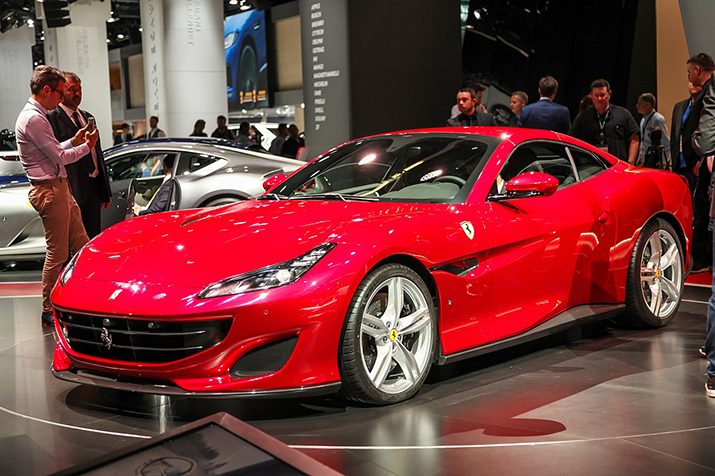
In late-February, COVID-19 started to spread in Northern Italy, leading the Italian prime minister, Giuseppe Conte, to immediately impose a quarantine on a few municipalities in the region. Despite this, daily cases of COVID-19 surpassed 1,000 on March 7. It became evident that the government had acted too late to prevent the spread of the pandemic, allowing the virus to spread nationwide, and forcing the government to expand the lockdown zone. This quarantine remained in place until mid-May. Our school did distance learning until the summer vacation, all restaurants were closed, and all gatherings were banned, leaving the roads empty. During this period, the Italian economy fell into recession. Even though some people were able to work in their homes, it was impossible to prevent the drastic decline in productivity. Therefore, numerous industries in Italy suffered tremendous damage. Among these industries, the automobile industry has an especially unpredictable and bleak future and faces various challenges.
Again, the roads were empty, so at least there were no traffic jams during the quarantine period. However, the quarantine was detrimental to car manufacturers. People had no reason to buy vehicles when they couldn't even go outside. So, overall sales of vehicles dropped drastically, and they have not yet recovered since the quarantine was lifted. Another reason for this drop in sales is that people are saving money because they couldn't make money during the quarantine. People are still tightening their belts now, and vehicles are too expensive for them to purchase. Therefore, the first challenge car manufacturers have to overcome to address this issue is the consumers’ aversion to consuming luxuries such as cars.
The second challenge is the European Union's pressure on car manufacturers. This year, the European Union (EU) proposed a more stringent policy on carbon emissions from vehicles. Manufacturers must pay penalties to the EU if the average carbon emissions of cars exceed the limitation. Just like the rest of the world, the European Union's goal is to reduce CO2 emission, which causes global warming. The European Union's goal for 2050 is net-zero greenhouse gas emissions, which requires completely eliminating pollutants.
Italy is a founding nation of the EU. Therefore, in addition to preserving the nation's reputation, Italian car manufacturers must follow the EU's policy.
So, why are car manufacturers experiencing such agony? To learn more about this, I interviewed the deputy general manager of KOTRA (Korea Trade-Investment Promotion Agency) in Milan.

According to Mr. Park, diesel and gasoline engines are still quite common in Italy. However, the global trend is green technology, and Italy is working to follow this trend. Perhaps in a decade, or even sooner, non-green vehicles will be replaced by eco-friendly vehicles, such as electric and hybrid cars. However, the fundamental issue for Italy is the inadequate quality of these green cars in the country. No consumer would willingly purchase a deficient product, so many Italian consumers are purchasing diesel vehicles because of their comparatively high quality, thus prioritizing themselves over global environmental issues. The only way to increase the sales of eco-friendly vehicles is to make better cars. Although it sounds simple, it is not. The development of technology requires considerable effort and time. The point is whether Italian car manufacturers can improve the quality of their cars in a short period of timeor not.

Today, the automobile market in Italy is extremely depressed due to COVID-19 and the EU’s pressure. Moreover, consumer confidence in Italy is very low, and the poor quality of green vehicles is turning consumers away. However, as the situation gets better, the market will be revived, and automobile manufacturers are currently working to improve their green technology. We will just have to wait and see how it goes.

Gaeun Lee
12th grade
American School of Milan

